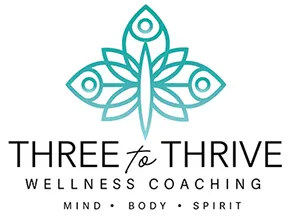Habit loops
You decide that you want to start exercising so you buy new running sneakers and set-out to run a mile. Your muscles are sore afterward, so you take the next day off. You write a motivational sticky note on your alarm clock to run the next morning but your daughter forgets that she needs supplies for a project, so you tell yourself you’ll start tomorrow. But the next day it rains and you don’t want to get your new sneakers wet quite yet. After a few starts and stops, the new sneakers end up at the bottom of your closet and you tell yourself, “Running is just not for me.”
Have you ever tried to establish a routine of daily reading, yoga, limiting social media time, eating more veggies, or (insert your desired healthy activity here)? What have you already tried- habit trackers, accountability partners, sheer willpower? These strategies only work for so long because you generally don’t incorporate them into your established routines. I enjoy the feeling of accomplishment after I run, but it is only through incorporating exercise into my social time with friends that I can be consistent with the routine.
“We are what we repeatedly do” – Aristotle
Thinking requires a great deal of energy! The brain is always trying to be more efficient by establishing habits instead of consciously making hundreds of thousands of decisions each day. Real behavior change starts with awareness of your habits then consciously changing your habit patterns. For example, you might notice that you sleep poorly the nights you scroll through social media right before bed. Instead, you find a new night time routine which includes a relaxing bath, reading, journaling, or even getting organized for the next day.
Understanding habit loops helps us understand why we do the things we do. The basic three components are 1. Cue (trigger) 2. Routine 3. Reward. For example, every time my dog hears me opening a plastic bag (trigger), she runs to me (routine) expecting a treat (reward).
To add a healthy habit, try to tag it to an existing routine. To restart my running routine, I asked a good friend to exercise with me instead of going out for dinner. We agreed on a time and place and we never want to let each other down by canceling. My rewards are feelings of accomplishment and connection. Try flossing your teeth immediately after finishing dinner.
To change an old habit, investigate your trigger and reward. I used to stop for snacks every day at a local gas station in-between clients until I realized I just needed a stress relief. Now, I try to bring healthy snacks with me and take a little walk around the parking lot when I need a break.
A keystone habit has a ripple effect on the rest of your life. When I can spend at least 5 minutes first thing in the morning for meditation and prayer, I am more calm and less reactive for the entire day. To discover keystone habits, take a good hard look at yourself through journaling, counseling or talking to a trusted loved-one. Make a list of troublesome habits and a plan for changing up your routine. Finding a strong “Why” can be your reward but make sure you find some short-term rewards as well.
Other hacks for establishing habits–
- Design your environment- make the habit the easiest option (ie. change your phone to grey scale instead of color to limit the appeal of your home page). Brush your teeth right after dinner to remove temptation of snacking before bed.
- Celebrate your success; each day you complete your new healthy habit, make a checkmark on your calendar or put a bean into a jar. When you get to ten checkmarks or beans, choose a healthy reward. By celebrating your successes, you’ll start to crave the dopamine you get from success instead of that chocolate bar.
- Check in with yourself. When you are craving an unhealthy habit, ask yourself, “What do I need at this moment?” If your answer is: relaxation, energy, or distraction, find a more effective solution (i.e. a short walk outside or a few deep breaths).
- Start small. Instead of starting with a mile run, spend every day the first week just lacing up your sneakers and walking down the street regardless of any weather or time constraint. Establish the habit consistency at a level that is achievable.
“If you can change your habits, you can change your life. The actions you take provide evidence for you are.” ~ James Clear
Resources:
The Power of Habit: Why We Do What We Do in Life and Business by Charles Duhigg
Atomic Habits by James Clear
Free Newsletter for effective habit change https://jamesclear.com/
Welcome to a place of encouragement and inspiration on your path to well-being. You deserve it!
Subscribe to the newsletter using the contact form to receive fresh weekly posts right into your inbox.
Be well, Trish

